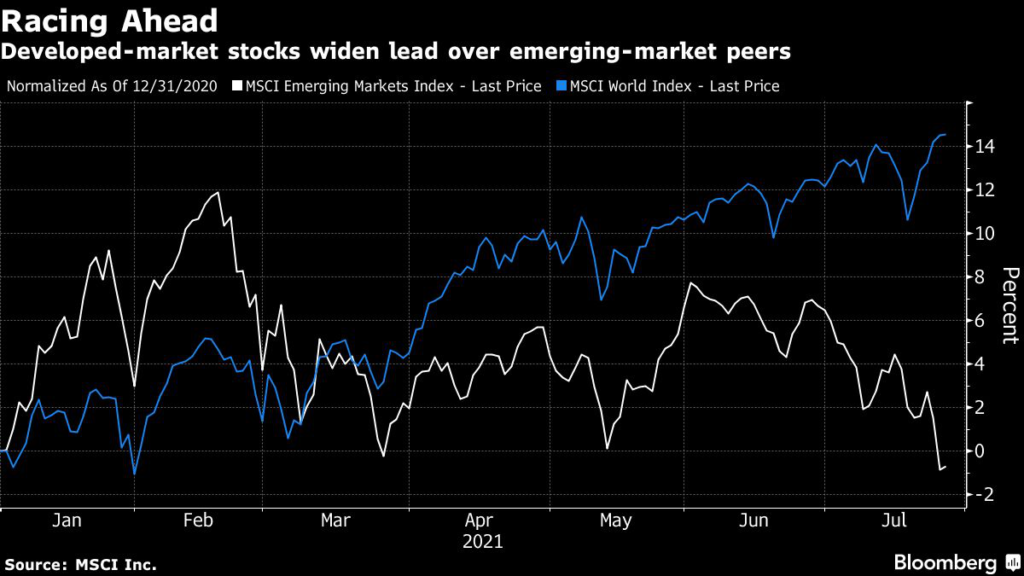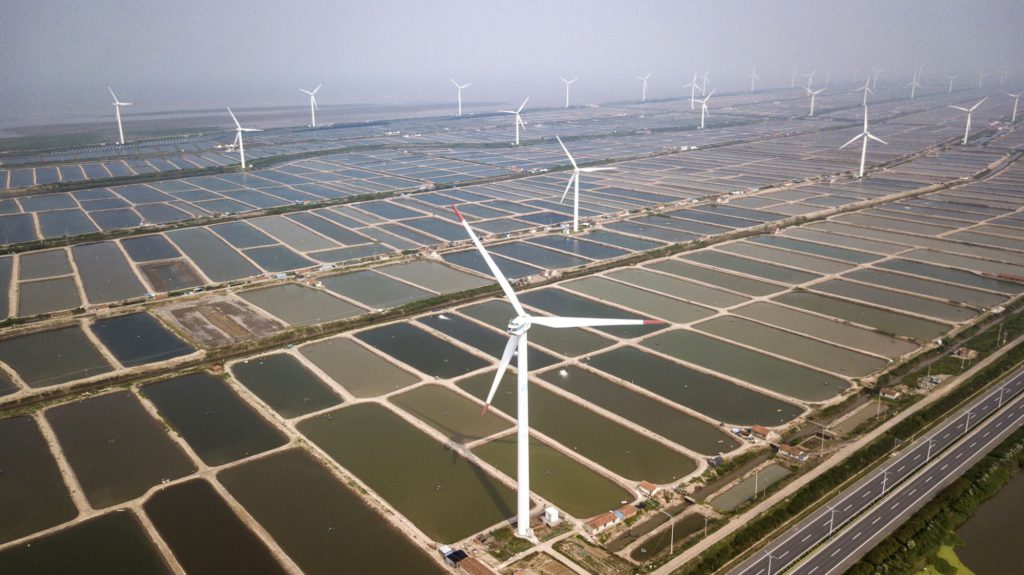(Bloomberg) — It’s a massive new oil refinery in an era focused on renewable energy. It’ll cost more than promised. It’s behind schedule. And now, public documents reveal that Dos Bocas — a favored project of Mexican President Andres Manuel Lopez Obrador for his home state of Tabasco — is being built in a zone the state oil firm had promised to protect.
The documents, which haven’t been reported previously, show that in 2006 and 2007, Petroleos Mexicanos, the state oil giant, committed to preserving the area that included a rare mangrove forest in exchange for the right to drill nearby.
The Environment Ministry gave Pemex permission to develop oil and gas reservoirs for 20 years on the condition that it not build anything new in nearby areas that contain rare flora and fauna, the files show. The area was home to four types of mangrove, a coastal tree that absorbs more carbon than most trees and protects against flooding, as well as 23 species of protected animals, Pemex said in its 2006 environmental impact assessment of the area.
Conserving vegetation on the coastline “should be considered a priority,” Pemex wrote in the impact assessment. It promised that all the mangroves would be in a “restricted use zone” where the company wouldn’t build or conduct activities other than maintaining existing installations.
In giving conditional approval to working the reservoirs, the Environment Ministry declared in 2007 that Pemex “will not be allowed to develop projects and activities in areas” containing mangroves and various other types of vegetation. Pemex “must abide by each and every prevention and mitigation measure it proposed in the environmental impact assessment,” and other documents included in the proposal, the ministry wrote.
Satellite mapping coordinates of the area listed in the documents and verified for Bloomberg by Planet Labs Inc., a San Francisco-based provider of satellite imaging services, along with maps, leave no room for ambiguity: the refinery sits inside the protected area.
The pledge to refrain from developing the land appears to still be in force, according to four environmental lawyers consulted by Bloomberg News — Fernanda Velasco and Adriana Miranda, both of whom worked as government regulators, Daniel Basurto, former coordinator of the Mexican Bar Association’s environment committee, and Gustavo Alanis, director of the Mexican Center for Environmental Law.
“Pemex is obliged to comply with these conditions throughout the lifetime” of the 20-year project, said Velasco.
Basurto said Pemex’s obligation to conserve the area could theoretically have been superseded by a later agreement or directive, but he knew of no such change.
Neither Pemex nor the Environment Ministry responded to several requests for comment. The office of the president declined to comment.
In 2019, a third party found to have illegally cut down mangroves on the Dos Bocas site was fined by the Security, Energy and Environment Agency (ASEA), a regulatory arm of the environment ministry. Satellite imagery shows mangroves continued to be chopped down after Pemex began building the refinery.
Lopez Obrador, known as AMLO, has promised to revive debt-laden Pemex to its former status as driver of the Mexican economy. He sees the refinery as critical to that project and to delivering energy security for the country.
“We want to be self-sufficient,” AMLO said when visiting the site last year. If it weren’t for Dos Bocas and repairs to six other refineries, “we would just be drilling wells and selling raw material abroad and buying more and more gasoline,” he said.
He touts the refinery as a great work and frequently shows videos of its progress at his morning press conferences. The footage, often animated, shows scurrying workers and bulging cranes building combustion towers and concrete domes on a dusty expanse flanked by jungle, a stone’s throw from the sea.
When visiting in May, Lopez Obrador proclaimed from a nearby waterfront: “This is my land, my water. We are going to the Dos Bocas refinery — working like this is a pleasure as well as a duty.”
Despite the many jobs created by the project, voters in Paraiso, the municipality where it’s located, rejected AMLO’s Morena party in local elections last month. The ruling party lost its hold on the town’s mayoralty to the PRD, a leftist party to which AMLO once belonged.
The project has hit snags. It was supposed to be open for business in 2022, but Pemex’s latest plan is for it to start full operations in 2023. Many economists thought the $8 billion price tag was too high. The latest projections suggest the cost will be more than $10 billion.
Read More: Energy Protectionism in Mexico Has Made Climate the Victim
AMLO’s push to revive state energy companies has often come at the expense of the environment. Scores of renewable energy projects have been stymied, while the state utility burns hyper-polluting high-sulfur fuel oil and a coal plant was reopened last year. Pemex drew international ire in early July when a gas leak caused a blazing fire at sea in the Gulf of Mexico, though the company said no environmental damage was caused.
On the other side of the ledger is an announcement this month by the governor-elect of the state of Sonora, a former member of AMLO’s cabinet, of a $1.7 billion investment to build what will be the world’s eighth-largest solar plant.
Meanwhile, a $3.4 billion project aimed at reforesting vast areas of jungle has accidentally encouraged the widespread loss of forest coverage. The president’s other major infrastructure project, a tourist railway in the country’s southeast, has courted controversy by threatening rainforest and the habitat of hundreds of endangered jaguars.
A 2008 study by the state-run Mexican Petroleum Institute carried out for Pemex found that Dos Bocas was the worst of seven potential sites considered for a new refinery due to environmental and social reasons, including the presence of mangrove forests and risk of flooding.
More stories like this are available on bloomberg.com
©2021 Bloomberg L.P.





